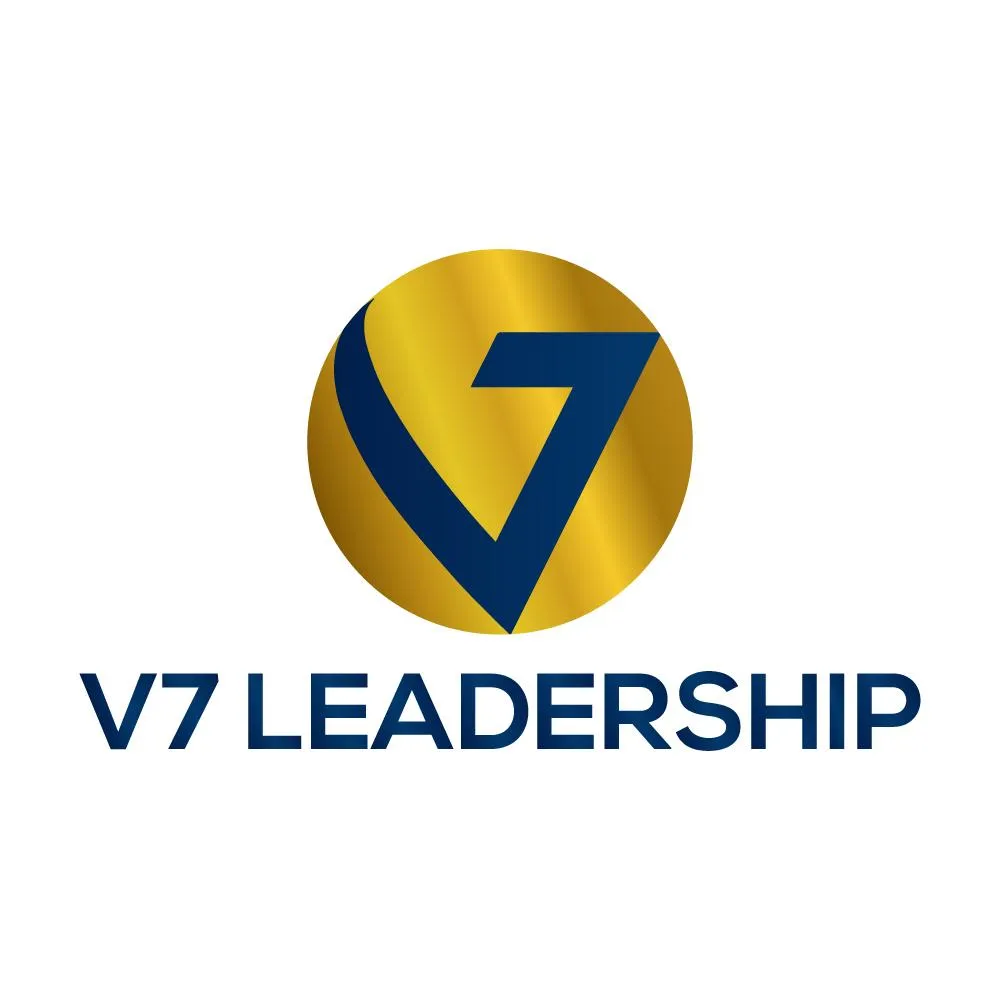Become a Better Leader. We Will Show You How.
Are you one of us?
Join the growing community of V7 Leadership leaders for tips, strategies, and resources to have the impact that you want to have.

Prove it.

The Seven V's of V7 Leadership
“Of methods there are many, but of principles there are few.” - Harrington Emerson
As we each navigate our careers, our choices, and our lives, there are any number of different paths to take. How do you know that you’re headed in the right direction? Without direction, people tend to travel in circles, literally and figuratively. It’s likely happened to you, and it’s definitely happened to me. So, how do you solve this problem? Well, as I’m fond of saying, “If you want someone to hit a target, show them what to aim for.” But how?
Principles.
Principles are a way to cut through the noise; a way to parse the gray. They are guideposts and North Stars, and they are powerful enough to fully install authority within you when you adhere to them. Said differently, when you have a set of Principles that you operate by – a Code, an Ethos, a… Way – then you can see more clearly and execute more cleanly. The juice is most assuredly worth the squeeze.
The squeeze? Yes – the time it will take to really sit and think through what makes the most sense for you and for your goals. Some people have different sets of Principles for certain contexts – one for personal relationships, one for how they parent, one for how they lead, one for how they perform a certain activity like wiring code or training for a sport, etc. Some people prefer small statements, others prefer the simplicity of single words. What matters most is that you know your Principles, that they make sense to you, and that they help you to deliver the consistent effort you want to deliver. We are responsible for our efforts, after all, not our outcomes.
When you are thinking about your Principles, I encourage you to start with what I’ll call Towards Principles, as in, those you want to move towards, or be in purposeful alignment with. It is also useful to think about what you want to stay away from (what you will not allow to stand), but that topic is for another post.
So, what are the Principles that we’ve defined as foundational to leadership? Well, as our name suggests, there are seven*: Vision, Voice, Vitality, Voyage, Versatility, Vigilance, and Victory.
Vision and leadership go hand in hand. You have to see the snapshot of the past, the reality of the present, and the painting of the future clearly, objectively, and from many different perspectives. That last bit – perspective – is arguably the most important. Can you detach from your current view to see something though the eyes of another?
Voice is all about honoring your word, and respecting the words of others - Speak and Listen with Integrity. You need to use your voice to communicate your vision, but you also need to listen to the voices of others and really hear what they are saying - spoken and unspoken. You have two eyes, two ears, and one mouth. That's a 4:1 ratio, yes?
Vitality is all about keeping your physical, mental, and psychological health strong. What practices do you keep to ensure that your mind, body, spirit, and emotions are working with you instead of against you? Naval Ravikant once said that, “A healthy person wants many things, a sick person wants one thing.” Said differently - without your health, you have nothing.
Voyage, is about making choices; what direction will you have your team set sail in? Have you considered the costs, benefits, risks, and politics of your choice? What are you choosing to NOT do as a result - if you choose to sail west, you're choosing to not sail east. Or south. Or north. Will the prize be worth the price?
Versatility is arguably my favorite, because it helps make clear how to get a LOT done - Play the Orchestra. Simply stated, you need to delegate in order to really win. There is a HUGE difference between, "this thing needs to be done" and "I personally need to do it." Who else can you pull in? Are people doing things that systems should be doing instead? I have another article about this - Zero Based Execution - where I dive deeper into these details.
Next is Vigilance, which is all about Discipline. You need to stick with your practices. Establish and execute routines. Save your thinking for something that deserves it. Keep learning; stay humble - as I'm fond of saying, "As my island of knowledge grows, so too does my shoreline of ignorance."
An finally, Victory. Winning is a skill. Learning from losses is a skill. Build an all-weather ability to keep learning and growing despite the outcomes. Focus on your efforts; those are the only things you can control. And never waste a failure - one of your own, or someone else's; you can learn from it all.
Onward and Upward,
-Paul, V7
Learn how to win,
and win well.
Get more out of
yourself and your team.
Sharpen the skills that pay for themselves over and again.


